Featured Article
UCT GSB’s EMBA Ranked Best in Africa and 11th Globally by CEO Magazine
The UCT GSB’s has reaffirmed its position as one of the world’s leading business schools in Africa and 11th globally for its EMBA programme in the 2025 CEO Magazine Global MBA Rankings.
Read ArticleLatest Articles

Managing Company-Community Conflict: UCT GSB Partners with Synergy Global
Company-community tensions are rising – but with practical tools and training, businesses can respond constructively and sustainably.
Read Article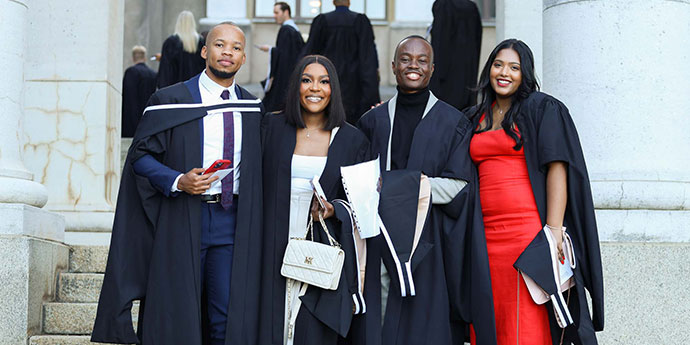
UCT GSB Ranks Among the Best for Transforming Leadership Across Africa and Beyond
The UCT Graduate School of Business (UCT GSB) has been ranked among the world’s top business schools for both Customised and Open Executive Education in the 2025 Financial Times Executive Education Rankings.
Read Article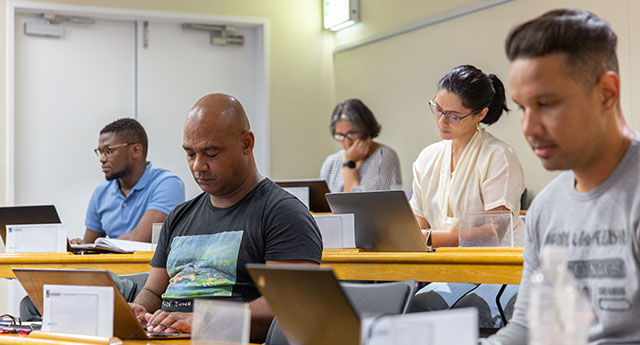
UCT GSB and TETA launch game-changing skills programme
The University of Cape Town Graduate School of Business (UCT GSB) in partnership with the Transport SETA (TETA) have launched a new year-long course to equip rising leaders with vital skills and capacity for this sector, which has the potential to unlock much-needed economic growth for South Africa.
Read Article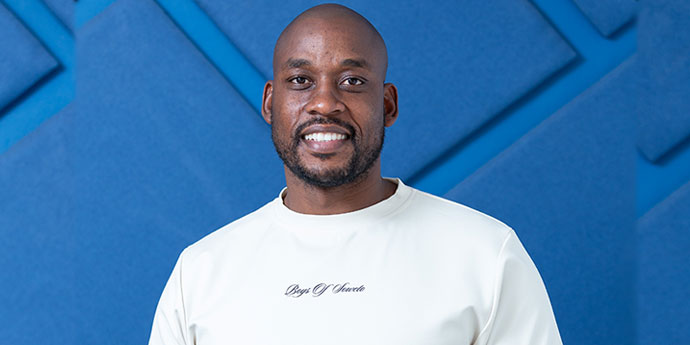
Building first generation founders – what we need to do for our young people
The First-Generation Founder by Raymond Ledwaba (MBA 2013/2014) offers a candid and inspiring look into the entrepreneurial journey of building a business as the first in your family to do so.
Read Article
Shaping the Invisible: Why South Africa Needs Intentional Leadership Now
On 22 May 2025, nearly 70 UCT GSB alumni and students gathered in Johannesburg for a thought-provoking event led by Professor Kosheek Sewchurran. The dialogue explored the challenges of cultivating leadership within ethically and ecologically complex environments.
Read Article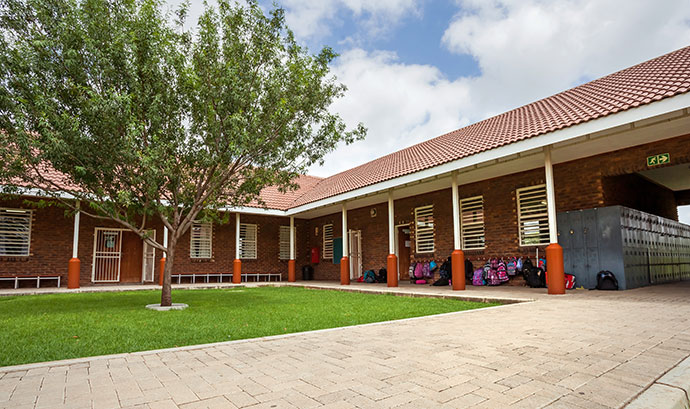
UCT GSB wins international award for case study on transforming SA schools
The University of Cape Town’s Graduate School of Business (UCT GSB) has won a prestigious gold award in the 2025 EFMD Excellence in Practice (EiP) Awards for a case study on the impact of skills development for principals at SA schools.
Read Article
Embracing the Future: Why Forward-Looking Executives Must Prioritise Transformational Global Leadership Development
Tech is moving faster than the rules can catch up - reshaping how we work, live and interact with the digital world.
Read Article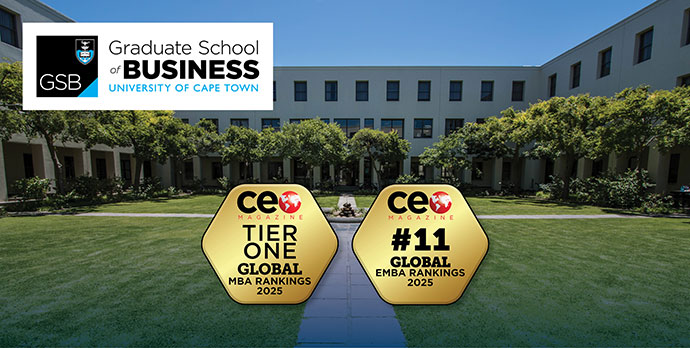
UCT GSB’s EMBA Ranked Best in Africa and 11th Globally by CEO Magazine
The UCT GSB’s has reaffirmed its position as one of the world’s leading business schools in Africa and 11th globally for its EMBA programme in the 2025 CEO Magazine Global MBA Rankings.
Read Article
Development finance: how it works, where it goes, why it’s needed
Development finance addresses the failures or limitations of financial institutions such as commercial and investment banks. It is the invisible glue that connects public and private financing for projects that have social, economic and environmental outcomes.
Read Article
Export finance and development finance: How Acre Impact Capital is providing a nexus for convergence
Bringing development finance actors together is key to unlocking sustainable infrastructure growth where it is most vital.
Read Article